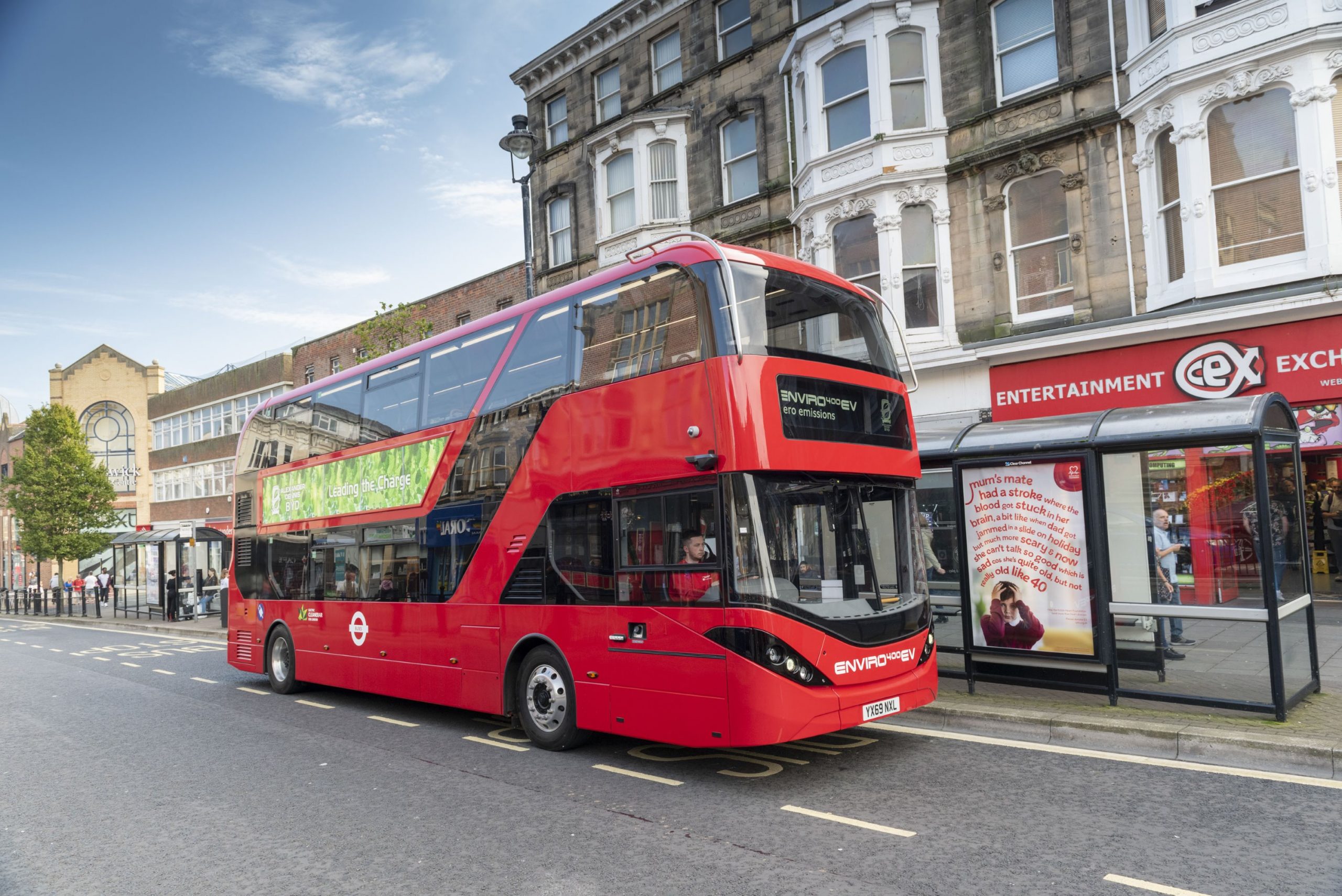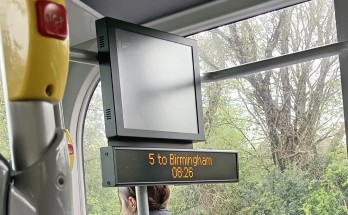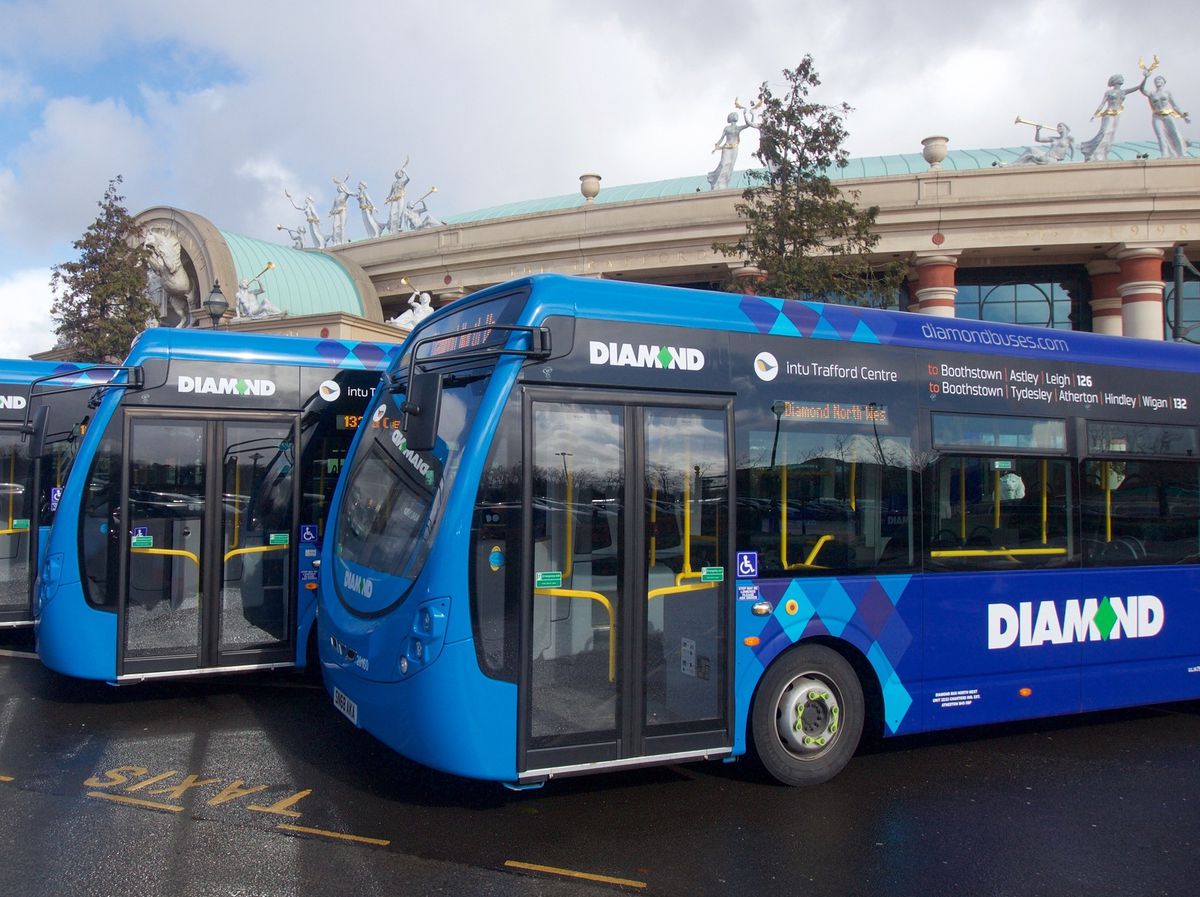The first all-electric buses for National Express West Midlands will start to enter service next month.
The first batch of 19 BYD ADL Enviro400 EV buses (similar to that pictured above) will be delivered to Yardley Wood garage and will go into service on the 6 service between Birmingham and Solihull via Hall Green and Shirley. A further 10 vehicles are destined for the National Express Coventry garage though I’m unsure at present which service these are intended for there.
Today (27th February) NX Bus issued a press release announcing their ‘ambition’ to have a zero-emission fleet by 2030, and which announced that they do not intend to purchase any more diesel engine vehicles.
National Express Group today outlines its vision to become the UK’s most sustainable bus and coach company.
National Express Group today announces:
– We will not buy another diesel bus for our UK operations;
– We will lead the transition to zero emission coaches, with a target for the first electric coaches to be in service next year;
– An ambition that our UK bus and UK coach fleets will be fully zero emission from 2030 and 2035 respectively;
– Environmental targets will make up 25% of senior executive Long Term Incentive Plans.
https://nxbus.co.uk/west-midlands/news/national-express-group-sets-out-zero-emission-vision
This is certainly a very ambitious, ahem, ambition, and it might be significant to note the use of the word ‘ambition’, rather than ‘goal’ or ‘target’.
Now don’t get me wrong, I’m all in favour of using electric vehicles to drive down pollution levels, which I do believe are a problem for us all, however I do accept that diesel vehicles meeting current Euro6 emission standards do pose less of a health-hazard, shall we say.
At the moment, NX Bus in the West Midlands and Coventry has a fleet size approaching 1600 vehicles, so an intake of 29 vehicles this year is a bit of a drop in the ocean. To replace this entire fleet with zero-emission vehicles by 2030 – just under ten years away now don’t forget – is going to require an influx of on average 160 new all-electric buses every year.
That is a bit of a mean feat, considering the cost of electric buses is much higher than their equivalent diesel-fuelled counterparts. Granted, this initial cost is then off-set by the fact that fuel (diesel) costs are virtually eliminated, though the cost of electricity to recharge the batteries has to be taken into consideration, this is presumably much lower though.
While this move is to be applauded, one would hope that National Express Bus is not aiming to increase its fares in order to cover the additional costs of purchasing these more expensive electric vehicles.
And where does this leave other smaller operators? They may not have the financial resources of the bigger groups, such as NX Bus, Arriva, First or Stagecoach, in order to compete.
It will be interesting to see how the ‘deregulated’ free-market bus services in the West Midlands will look in just ten years time.
Or is this just a ‘trendy’ ambition that will never be achieved, hence why words such as ‘target’ or ‘goal’ haven’t been used instead?
Full press release can be found at the National Express West Midlands website.
Featured image is (c) Alexander Dennis Ltd
![]()




